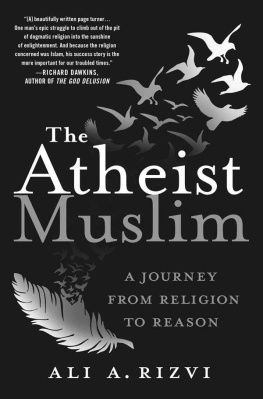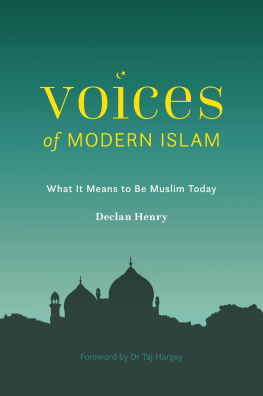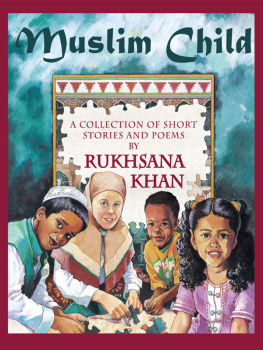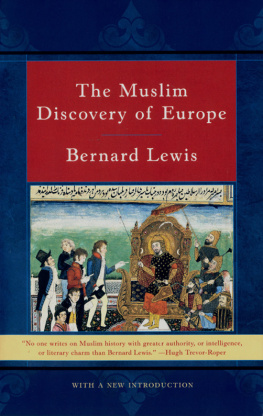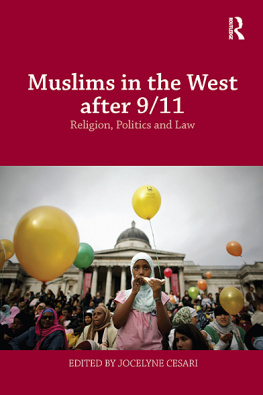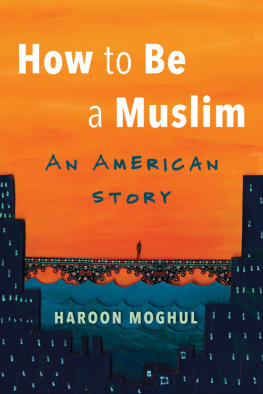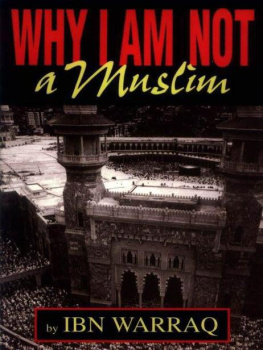Thank you for buying this
St. Martins Press ebook.
To receive special offers, bonus content,
and info on new releases and other great reads,
sign up for our newsletters.
Or visit us online at
us.macmillan.com/newslettersignup
For email updates on the author, click here.
The author and publisher have provided this e-book to you for your personal use only. You may not make this e-book publicly available in any way. Copyright infringement is against the law. If you believe the copy of this e-book you are reading infringes on the authors copyright, please notify the publisher at: us.macmillanusa.com/piracy.
For Zo
Im in the fifth grade at the American International School in Riyadh, Saudi Arabia, and our teacher wants us to make paper snowflakes. Brimming with excitement, we all fold up our pieces of paper, cut into them, open them up, decorate them using glue and glitter, and label them with our names. They will be displayed on the bulletin board in the hall, after which we get to take them home to show our parents.
Thing is, it doesnt snow in Riyadh. Ive never even seen snowand I wont until I move to Canada, well into my twenties. But this is an American school, and its two weeks to Christmas break. Trees with handmade ornaments are up everywhere. Music teachers are busy preparing students for the winter recital. And classroom walls are adorned with cutouts of elves, snowmen, and reindeer.
My school has over two thousand students of about eighty nationalities, all from expatriate families, mostly American and Canadian. The Saudis arent allowed by law to attend it. This is more or less consistent with the generally minimal interaction foreigners have with the locals anywayand the government seems to like it that way. Consequently, our exposure to the Saudis culture and customs is limited, as is theirs to ours. So it makes sense that Westerners who find themselves isolated in this cultural desert halfway across the world would want something to keep their kids connected to the way things are back home.
Well, almost.
You have to say winter or holiday instead of Christmaswinter break, winter recital, holiday party, and so onand you cant display anything religious like crosses or images of Jesus. But the rest of its pretty legit.
From time to time, government officials drop by to see if our school is in compliance with their rules. And todayon snowflake dayan officer from the ministry just happens to be dropping in for an inspection.
He approaches our snowflakes on the bulletin board, and he doesnt look happy. Scowling, he turns around to say something to our teacher. She hands him a pair of scissors, at his request. Then, he proceeds to snip one of the points off each of the paper snowflakes, leaving the disfigured, asymmetrical five-pointed figures on the board, not even bothering to pick up the amputated scraps of paper that have fallen to the floor.
As youd expect, it isnt long before my teacher finds herself staring into the faces of twenty confused kids trying to make sense of what theyve just witnessed. What could possibly be so threatening about snowflakes ? Why are five points okay but not six?
What is the Star of David? we ask her, after she has finallyand hesitantlygiven us the real answer to a long string of persistent whys characteristic of children our age. And whats so repugnant about it that a grown, literate man, presumably of sound intellectual faculty (hes from the Ministry of Education, after all), cant even stand the sight of paper snowflakes made by a bunch of eleven-year-olds just because both structures happen to have the same number of points?
Its their symbol, the kid sitting next to me tells us, practically whispering.
Im puzzled, disoriented, and slightly traumatized about having my creativity mauled. But most of all, Ive just been given my first ever introduction to the Jewsand I am terrified .
I get home, itching to ask my father, a geography and history whiz, about the Jews. He asks me to get my illuminated plastic globe of the world that we bought earlier this year from both his and my favorite place in the citythe Jarir Bookstore in Riyadhs Al Akariyah Mall. He tells me a little bit about the history of the Israeli-Palestinian conflict, and guides me to find Israel on the globe. I look, and it isnt there. He then brings down a world atlas, also from the same store. Again, no Israel. It isnt on either map. Strangely, the maps havent just ignored its existence and called all of it Palestine like they do on TV; instead, it appears as a blue, nameless notch in the Middle East, blending into the Mediterraneanliterally wiped off the map.
* * *
Im not telling you this to assert one position or another on the Middle East. Of course, I know today that Israel isnt synonymous with all Jews and vice versa. But I want you to understand how people often grow to believe things the way that they do, and how fear can entrench those beliefs so deeply in ones mindespecially a childs mindthat they become all but intractable.
What happened with me was actually the best-case scenario, considering the circumstances. I was a Pakistani child going to an international school. Both of my parents were highly educated university professors. My father had earned his doctorate in Canada, and my mother earned hers in the United States. They were progressive, rational, and well traveled. Both had lived and taught in several countries before they got married and had me. Like the other expatriates in Saudi, they had very little interaction with the locals outside of their places of work. They were liberal Muslims who valued pluralism and quality education that went beyond the textbookand they wanted to instill that in us, their four children. This was a key reason they sent us to this expensive, private school.
Now, imagine the experience of an average Saudi child who will live in Saudi Arabia most or all of his life, like his parents did. He attends public Saudi schoolswhich the children of expatriates are not allowed to attend. Officials from the Ministry of Educationlike the one who visited my classroom that daydont just do spot-checks in his school to see if everythings running as it should. They actually write his schools curriculum, and significantly influence what goes in his textbooks.
We got a peek into the content of these textbooks shortly after the 9/11 attacks, after an investigation into the factors that may have led the hijackersfifteen of whom were Saudi out of a total of nineteento do what they did. For example, a textbook for tenth-graders entitled Monotheism , published in 2000, featured passages like, The Hour will not come until Muslims will fight the Jews, and Muslims will kill all the Jews. Students werent just asked to learn these ideasthey were required to memorize the passages verbatim.
Concerned, the United States put pressure on the Saudis to reform their education system. The author of several of these books, a deeply revered religious scholar named Saleh Al-Fawzan, was furious. In an interview with Saudi newspaper Al Jazirah , he said,
The Jews and Christians and the polytheists have shown their heartfelt hatred and try to prevent us from the true path of God. They want to change our religion and our teaching to disconnect us from Islam so they can come and occupy us with their armies. It is bad enough when it comes from the infidels, but worse when they are of our skin. They say we create parrots, but they are the real parrots repeating what our enemies say of Islam.
Other Saudi officials, however, were more conciliatory. Over the next four years, they kept insisting repeatedly that the system had been reformed and the textbooks changed. And then Freedom House, a human rights think tank, got hold of some of these reformed books published in 2005 and 2006 and put out a report. Its findings were astonishing.
Next page
